In modern Ireland the only real changes to the structure of dairy processing have been mergers of a certain kind. It has usually involved a strong dairy processor purchasing a financially weaker entity.
Irish dairy processing is largely co-op-owned, or at least has a strong farmer influence. Glanbia and Kerry are the standout differences, and between them they have almost 50% of the ROI milk pool.
Glanbia operates a hybrid shared plc and co-op model. In Kerry, the plc controls the milk processing while Kerry farmers own 12% of the plc and are organised in Kerry Creameries Limited.
Kerry milk suppliers are at a crossroads
Currently, Kerry milk suppliers are dependent on Kerry plc to manage the dairy business. In a global context, private dairy companies have a big say in some countries. Kerry plc is no different. They live and die on profit.
In the main they are not concerned about the welfare of milk suppliers. Buying milk is a business transaction the same as buying beef is for meat factories.
Kerry milk suppliers are at a crossroads and maybe have already driven straight past the turn off into milk processing. Below are some recent examples where milk suppliers lost out or gained from growth and development.
Founded in 1950, Murray Goulburn grew to be the largest dairy co-op in Austraila by 1973.
It grew to 2,400 employees and sold a lot of product into Asia. The milk pool grew to 3.6bn litres, bigger than Glanbia. However, the rising cost of making milk due to drought in Australia left suppliers struggling. Murray Goulburn partially listed on the Australian stock exchange in 2015 in a capital restructure, seeking $500m. The same year it opened milk price at 20 c/l. Milk suppliers left in droves, in less than a year 1bn litres had left the co-op. In 2016, another 600m litres left. An internal business review began and three processing sites were closed. In 2018, private Canadian company Saputo bought the lot for $1.3bn.
After nearly 70 years as a co-op, dairy farmers voted to sell the business to Saputo
Murray Goulburn was trying to match milk price of local processors and keep a positive vibe about the business to help share price – it was trying to ride two horses. The CEO at the time was later fined $200,000 by a federal court for knowingly being involved in the misleading claims about farmgate milk price in 2015 to keep share price up. Murray Goulburn failed to recover. After nearly 70 years as a co-op, dairy farmers voted to sell the business to Saputo. If a private company saw value in the Kerry business, something similar could happen. It can work if managed properly.
Founded in 1895, Dutch co-op DOC Kaas had up to 3,000 suppliers at its peak.
Its most recent significant investment in processing was a cheese factory in 2003. Turnover in 2015 was €600m and it processed about 800m litres of milk (slightly smaller than Kerry’s current pool). Local Dutch farmers supplied the milk and were paid a competitive price in comparison to local co-ops and product returns.
Another private Dutch cheese maker, Royal A-ware, wanted to save the company but that didn’t work for DOC Kaas
My sources tell me the relationship between DOC Kaas and milk suppliers turned sour after the co-op invested in the new cheese factory. They had a state-of-the-art factory but market access and returns weren’t as good as expected.
Suppliers started to get poor milk prices and revolted.
Another private Dutch cheese maker, Royal A-ware, wanted to save the company but that didn’t work for DOC Kaas. FrieslandCampina the dominant market force was not allowed to save them due to competition rules.
Hence, German co-op DMK (Deutsche milchkontrole) took DOC Kaas under its wing. DMK processes about 8bn litres of milk (the same as all the milk in ROI). Turnover in 2019 was €5.8bn and it made €24.5m profit. DMK makes baby food, yoghurts, milk powders, and infant formula. It processes milk for FrieslandCampina and Arla and makes whey products.
What was a long-established Dutch cheese-making business is now a small part of a German business with a diverse product portfolio
So why did this happen? I’m told loan repayments and low returns forced the hand of DOC Kaas management. The business was vulnerable so a partner was sought that could bring expertise and capital. What was a long-established Dutch cheese-making business is now a small part of a German business with a diverse product portfolio.
Overnight the milk suppliers lost sole control of the business, the history, the investments and are now part of a much bigger entity. Business moves on. Is there another Irish entity that could see value in the Kerry milk pool?
Royal A-ware and
Glanbia joint venture
Royal A-Ware is a private Dutch company that was formed in 2010 when two leading Dutch cheese companies decided to join forces.
Bouter (1890) and Anker (1963) combined to form A-ware so they could grow the business further. Royal A-ware has been trading cheese for a long time and was ripening and trading all cheese for FrieslandCampina until 2012.
A-ware has a milk pool in the region of 1.5bn litres. The core comprises about 500 suppliers producing above-average volume per farm.
Some of this initial milk pool came about when Friesland and Campina joined forces and were forced to sell some of their milk pool to other companies under EU law.
In 2019 A-ware turnover was €1.5bn with an EBIDTA of €72m and a net profit of €21.5m employing 2,856 staff
A-ware built its own state-of-the-art cheese factory. The ultimate in efficiency and quality control. This is the money-making machine for the business. A-ware also has a fresh milk pool, processes lots of products and markets them exclusively for Albert Heijn, the largest supermarket retailer in the Netherlands.
In 2019 A-ware turnover was €1.5bn with an EBIDTA of €72m and a net profit of €21.5m employing 2,856 staff (similar to Glanbia numbers published last week). A-ware recently invested €102m in a mozzeralla and cream cheese factory in Heerenveen.
Partnership
Last year the company identified Glanbia as a partner in the investment in the new cheese facility at Belview. So Glanbia and A-ware are forming a joint venture for this new development.
A-ware brings the marketing skills, operational excellence for cheese and the factory know-how. Glanbia brings the milk pool and factory.
Is a joint venture an option for Kerry milk suppliers? Is there a private dairy company that can bring expertise and vision to a Kerry milk pool?
Vital to get the fundamentals of
the business right
In all three examples featured here there are lessons for Kerry milk suppliers.
For a co-op to survive, it must maintain a clear social and economic purpose with the members’ interests first and foremost. In Australia, Murray Goulburn’s members were turned from owners and members of a democratic co-op processing milk into suppliers and investors whose share value was linked to the price of a litre of milk.
Something similar is at the heart of the Kerry situation. Share prices, conversions, tax, dividends, share trading, and a war on milk price are central to co-op issues ongoing in the southwest of Ireland. Often these issues can cloud judgment and decisions. Clarity and separation is needed.
Dairy co-op margins are notoriously tight. Processing must be streamlined and efficient to make the tight margin. The business must be focused on delivering its members the best prices at the lowest cost.
Need for capital is always necessary in milk processing
Processing must be efficient and modern. Growth and reinvestment are necessary. Old processing assets can hamper efficiency.
Lessons from Murray Goulburn tell us co-op boards must question CEOs. The co-op chair drives this. The co-op chair must remain totally independent.
A co-op board of a dairy company should be asking is the product mix delivering for farmers? Is it benchmarking the co-op against others? Is value-add turning into more profit? Is investment taking place from retained earnings?
Need for capital is always necessary in milk processing.
As Kerry plc owns the processing assets in Kerry, unfortunately for
Kerry dairy farmers, none of these questions can or are being asked of the co-op chair in the current structure.
A separate entity with a clear remit needs to drive this new dairy development, vision and strategy. That’s if the milk suppliers in the region want this to happen.
Read more
Listen: Kerry update - what really has happened in the last week?
Kerry Co-op shareholders revolt against leadership
Kerry farmers move against co-op board
In modern Ireland the only real changes to the structure of dairy processing have been mergers of a certain kind. It has usually involved a strong dairy processor purchasing a financially weaker entity.
Irish dairy processing is largely co-op-owned, or at least has a strong farmer influence. Glanbia and Kerry are the standout differences, and between them they have almost 50% of the ROI milk pool.
Glanbia operates a hybrid shared plc and co-op model. In Kerry, the plc controls the milk processing while Kerry farmers own 12% of the plc and are organised in Kerry Creameries Limited.
Kerry milk suppliers are at a crossroads
Currently, Kerry milk suppliers are dependent on Kerry plc to manage the dairy business. In a global context, private dairy companies have a big say in some countries. Kerry plc is no different. They live and die on profit.
In the main they are not concerned about the welfare of milk suppliers. Buying milk is a business transaction the same as buying beef is for meat factories.
Kerry milk suppliers are at a crossroads and maybe have already driven straight past the turn off into milk processing. Below are some recent examples where milk suppliers lost out or gained from growth and development.
Founded in 1950, Murray Goulburn grew to be the largest dairy co-op in Austraila by 1973.
It grew to 2,400 employees and sold a lot of product into Asia. The milk pool grew to 3.6bn litres, bigger than Glanbia. However, the rising cost of making milk due to drought in Australia left suppliers struggling. Murray Goulburn partially listed on the Australian stock exchange in 2015 in a capital restructure, seeking $500m. The same year it opened milk price at 20 c/l. Milk suppliers left in droves, in less than a year 1bn litres had left the co-op. In 2016, another 600m litres left. An internal business review began and three processing sites were closed. In 2018, private Canadian company Saputo bought the lot for $1.3bn.
After nearly 70 years as a co-op, dairy farmers voted to sell the business to Saputo
Murray Goulburn was trying to match milk price of local processors and keep a positive vibe about the business to help share price – it was trying to ride two horses. The CEO at the time was later fined $200,000 by a federal court for knowingly being involved in the misleading claims about farmgate milk price in 2015 to keep share price up. Murray Goulburn failed to recover. After nearly 70 years as a co-op, dairy farmers voted to sell the business to Saputo. If a private company saw value in the Kerry business, something similar could happen. It can work if managed properly.
Founded in 1895, Dutch co-op DOC Kaas had up to 3,000 suppliers at its peak.
Its most recent significant investment in processing was a cheese factory in 2003. Turnover in 2015 was €600m and it processed about 800m litres of milk (slightly smaller than Kerry’s current pool). Local Dutch farmers supplied the milk and were paid a competitive price in comparison to local co-ops and product returns.
Another private Dutch cheese maker, Royal A-ware, wanted to save the company but that didn’t work for DOC Kaas
My sources tell me the relationship between DOC Kaas and milk suppliers turned sour after the co-op invested in the new cheese factory. They had a state-of-the-art factory but market access and returns weren’t as good as expected.
Suppliers started to get poor milk prices and revolted.
Another private Dutch cheese maker, Royal A-ware, wanted to save the company but that didn’t work for DOC Kaas. FrieslandCampina the dominant market force was not allowed to save them due to competition rules.
Hence, German co-op DMK (Deutsche milchkontrole) took DOC Kaas under its wing. DMK processes about 8bn litres of milk (the same as all the milk in ROI). Turnover in 2019 was €5.8bn and it made €24.5m profit. DMK makes baby food, yoghurts, milk powders, and infant formula. It processes milk for FrieslandCampina and Arla and makes whey products.
What was a long-established Dutch cheese-making business is now a small part of a German business with a diverse product portfolio
So why did this happen? I’m told loan repayments and low returns forced the hand of DOC Kaas management. The business was vulnerable so a partner was sought that could bring expertise and capital. What was a long-established Dutch cheese-making business is now a small part of a German business with a diverse product portfolio.
Overnight the milk suppliers lost sole control of the business, the history, the investments and are now part of a much bigger entity. Business moves on. Is there another Irish entity that could see value in the Kerry milk pool?
Royal A-ware and
Glanbia joint venture
Royal A-Ware is a private Dutch company that was formed in 2010 when two leading Dutch cheese companies decided to join forces.
Bouter (1890) and Anker (1963) combined to form A-ware so they could grow the business further. Royal A-ware has been trading cheese for a long time and was ripening and trading all cheese for FrieslandCampina until 2012.
A-ware has a milk pool in the region of 1.5bn litres. The core comprises about 500 suppliers producing above-average volume per farm.
Some of this initial milk pool came about when Friesland and Campina joined forces and were forced to sell some of their milk pool to other companies under EU law.
In 2019 A-ware turnover was €1.5bn with an EBIDTA of €72m and a net profit of €21.5m employing 2,856 staff
A-ware built its own state-of-the-art cheese factory. The ultimate in efficiency and quality control. This is the money-making machine for the business. A-ware also has a fresh milk pool, processes lots of products and markets them exclusively for Albert Heijn, the largest supermarket retailer in the Netherlands.
In 2019 A-ware turnover was €1.5bn with an EBIDTA of €72m and a net profit of €21.5m employing 2,856 staff (similar to Glanbia numbers published last week). A-ware recently invested €102m in a mozzeralla and cream cheese factory in Heerenveen.
Partnership
Last year the company identified Glanbia as a partner in the investment in the new cheese facility at Belview. So Glanbia and A-ware are forming a joint venture for this new development.
A-ware brings the marketing skills, operational excellence for cheese and the factory know-how. Glanbia brings the milk pool and factory.
Is a joint venture an option for Kerry milk suppliers? Is there a private dairy company that can bring expertise and vision to a Kerry milk pool?
Vital to get the fundamentals of
the business right
In all three examples featured here there are lessons for Kerry milk suppliers.
For a co-op to survive, it must maintain a clear social and economic purpose with the members’ interests first and foremost. In Australia, Murray Goulburn’s members were turned from owners and members of a democratic co-op processing milk into suppliers and investors whose share value was linked to the price of a litre of milk.
Something similar is at the heart of the Kerry situation. Share prices, conversions, tax, dividends, share trading, and a war on milk price are central to co-op issues ongoing in the southwest of Ireland. Often these issues can cloud judgment and decisions. Clarity and separation is needed.
Dairy co-op margins are notoriously tight. Processing must be streamlined and efficient to make the tight margin. The business must be focused on delivering its members the best prices at the lowest cost.
Need for capital is always necessary in milk processing
Processing must be efficient and modern. Growth and reinvestment are necessary. Old processing assets can hamper efficiency.
Lessons from Murray Goulburn tell us co-op boards must question CEOs. The co-op chair drives this. The co-op chair must remain totally independent.
A co-op board of a dairy company should be asking is the product mix delivering for farmers? Is it benchmarking the co-op against others? Is value-add turning into more profit? Is investment taking place from retained earnings?
Need for capital is always necessary in milk processing.
As Kerry plc owns the processing assets in Kerry, unfortunately for
Kerry dairy farmers, none of these questions can or are being asked of the co-op chair in the current structure.
A separate entity with a clear remit needs to drive this new dairy development, vision and strategy. That’s if the milk suppliers in the region want this to happen.
Read more
Listen: Kerry update - what really has happened in the last week?
Kerry Co-op shareholders revolt against leadership
Kerry farmers move against co-op board




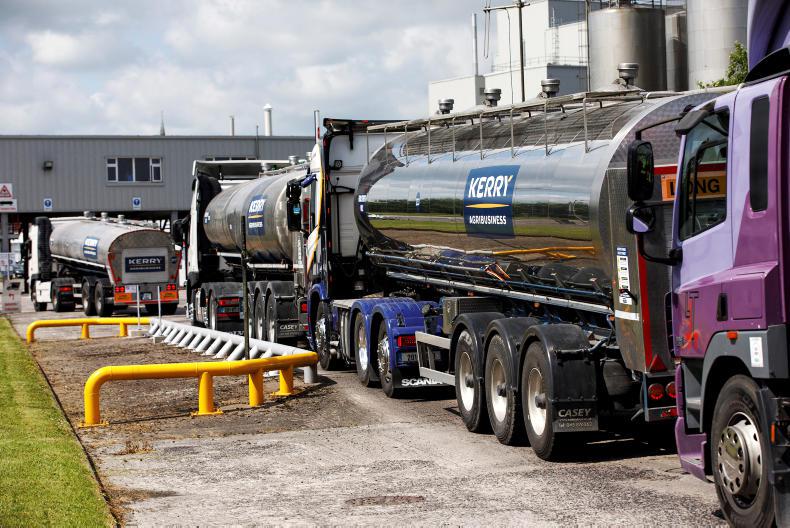
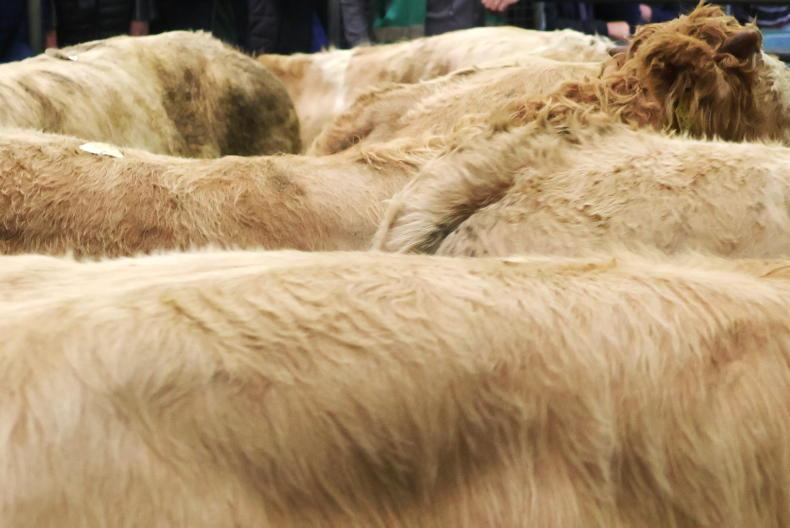

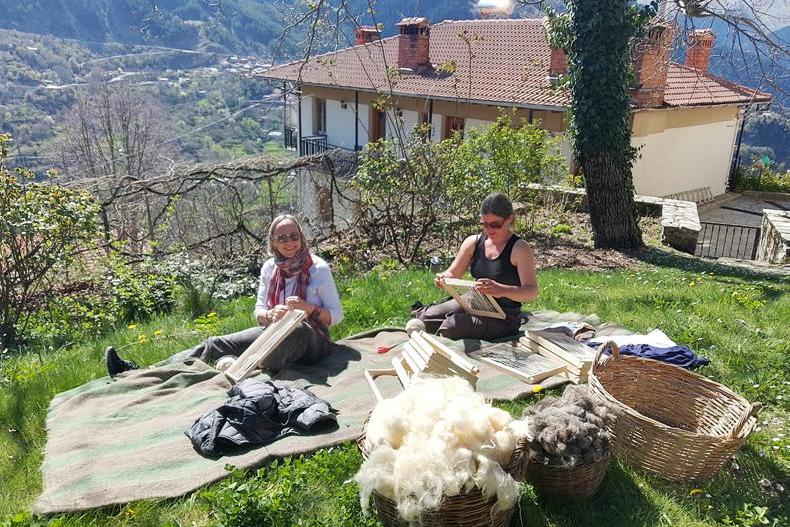
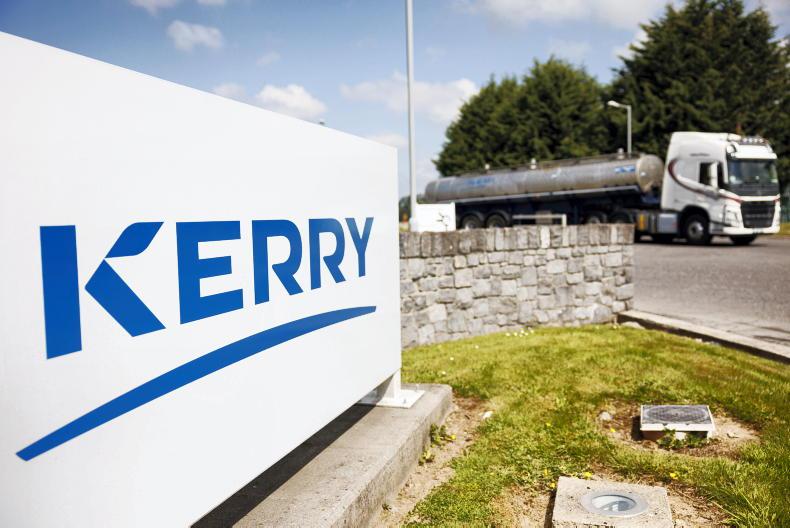
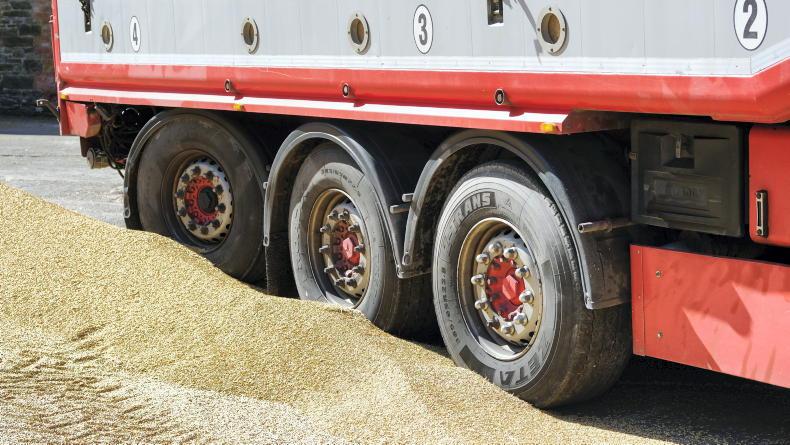
SHARING OPTIONS